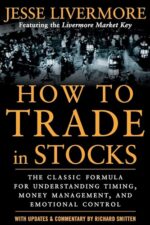Pitfalls Of Speculation
$14.72
Originally published in 1921, Pitfalls of Speculation by Thomas Gibson remains one of the most enduring works on the psychology, behavior, and discipline required for successful market speculation. Gibson—an experienced Wall Street observer and author of The Cycles of Speculation—analyzes the emotional and strategic mistakes that destroy traders: greed, overconfidence, lack of preparation, and disregard for capital protection.
Rather than focusing on methods or formulas, Gibson dissects why traders fail — exploring topics such as overtrading, misuse of margin, following tips, and the illusion of control. He contrasts the mentality of the professional trader with that of the amateur speculator, emphasizing that consistent profit depends on patience, prudence, and risk limitation.
In a time when speculation was often dismissed as gambling, Gibson defended it as a legitimate, disciplined pursuit — but only for those with sound judgment and emotional balance. His observations, still relevant a century later, mirror modern behavioral finance concepts such as loss aversion, herd behavior, and the psychology of drawdowns.
This is a must-read for traders who want to strengthen emotional control, recognize hidden psychological traps, and develop the mindset of a true professional.
✅ What You’ll Learn:
- The major psychological errors that cause traders to lose money.
- The difference between professional speculation and reckless gambling.
- How overtrading, margin abuse, and emotional decisions destroy capital.
- Why greed, fear, and hope distort rational judgment.
- How to maintain discipline and follow a defined plan through all market phases.
- Lessons on capital preservation, patience, and mental preparation.
💡 Key Benefits:
- Develop the mindset of a disciplined and strategic trader.
- Learn to identify and avoid common emotional and behavioral traps.
- Gain perspective on how psychology shapes risk and reward.
- Build long-term consistency through patience and capital control.
- Understand how historical lessons apply directly to modern markets.
👤 Who This Book Is For:
This book is invaluable for:
- Discretionary traders seeking emotional balance and capital discipline.
- Technical and price action traders wanting to understand behavioral risk.
- Students of trading psychology exploring historical perspectives on speculation.
- Investors learning how to protect themselves from overconfidence and crowd behavior.
📚 Table of Contents:
- The Impossibilities of Speculation
- The Public Attitude Toward Speculation
- Ignorance, Over-Speculation, etc
- Manipulation
- Accidents
- Business Methods in Speculation
- Analyzing Basic Conditions
- Market Technicalities
- Tips
- Mechanical Speculation
- Short Selling
- What 500 Speculative Accounts Showed
- Grain Speculation
- Suggestions as to Intelligent Methods
- Simple Methods of Analysis
Pitfalls Of Speculation By Thomas Gibson
| Author(s) | |
|---|---|
| Product Type | Ebook |
| Format | |
| Skill Level | Beginner to Intermediate |
| Pages | 195 |
| Publication Year | 1916 |
| Delivery | Instant Download |
3 reviews for Pitfalls Of Speculation
Only logged in customers who have purchased this product may leave a review.










Cal Lloyd (verified owner) –
The Pitfalls of Speculation is a classic read. The advice in this book is as timely today as it was when it was originally written. For Example, Gibson offers his astute observations as follows:
After a careful examination, covering a period of ten years, and a study of the methods of successful and unsuccessful traders as shown in some thousands of speculative accounts, the following facts are adduced:
1st – The greatest causes of loss in speculation are ignorance, over-speculation, and carelessness, of importance in the order named.
2nd – The popular fallacy that business methods are not applicable to speculation is wholly erroneous.
3rd – Not one speculator in a thousand applies ordinary business precautions to his trades, nor founds his ventures upon knowledge of any value.
4th – The correct trader has little to fear, and much to gain from manipulative tactics.
5th – While extremes of prices move in irregular cycles, no “system” for judging changes is possible, or tenable, as such mechanical attempts to forecast price changes do not contemplate changed conditions, or provide for accident. The advocates of the “Chart System” are legion, and yet it is impossible to find a single permanent and substantial gain made by this method.
6th – The general idea that the actual value, and probable future of a property cannot be intelligently based, is erroneous.
7th – The greatest speculative profits are made in stocks, and the greatest speculative losses, in staples: wheat, corn, cotton, etc.
8th – There are certain technical stages, or conditions of markets which are followed by certain invariable results, the study and recognition of which is valuable, and not difficult. These “ear-marks” are in some cases very plain, and do not in any way smack of the “systems” deprecated above, but are more or less visible signs of effects following certain causes.
9th -Almost every general idea of speculation is the exact reverse of the truth. Sometimes this is caused by false reasoning, but most frequently by the innate false appearance of the market quotations. For example, greatest activity and interest in a market occurs around top prices; while dullness and stagnation are invariable when properties are unreasonably low in price.
10th – Persistent short selling of stocks is fashionable in a certain class of semi-professional traders, and almost invariably results in loss.
11th – Tips are illogical. Any wide-spread dissemination of advance information as to a projected movement would defeat its own object. The so-called “tip'” is usually mere guess work. The general consensus of public opinion on this subject is correct, i. e., tips are valueless; and yet the public continues to use them largely as a basis of trading.
12th – Too great facilities for obtaining information and executing orders, is, to the ordinary trader, of no advantage, and is frequently a source of loss. (The accounts mentioned above show the most intelligent trading to have been done by traders who were without facilities to interfere with their own original plans through fright or confusion.)
13th – Speculation is a safe business when business methods are applied to it. The changes in prices of standard properties offer yearly greater opportunities for profit than any other field. That is to say, for reasonable profits, not for the amassing of fortunes on small capital, in a brief period, but for steady accumulation of money and valuable knowledge. So great are the opportunities offered by speculative changes that with proper methods and self-control, the poor man cannot afford to overlook them.
Spencer Schneider (verified owner) –
Have found some really good books among the classic stock books: Mamis and Carret were both excellent. Gibson is terrible. There’s no real information to be gained here, except that the public is stupid, public is stupid, public is stupid. No information, endless repetition, “I’m better than thou”. How could I have wanted more?
Emely Figueroa (verified owner) –
A classic just as relevant today as it was 100 years ago. A great read and re-read.